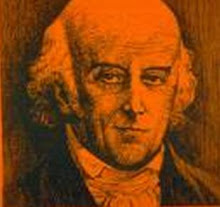The term “Homeopathy” originated from the joining of two Greek words meaning “like disease” or words to that effect. By the nature of these words, the term homeopathic can be seen as the treatment of illness with a like or similar illness. So Homeopathy does not use the exact same disease to treat an illness (aka, isopathy), but a similar disease or “like” disease. It may seem like splitting hairs to those new to the ideas of Homeopathy, but it makes all the difference in what it is and how it works.
Hahnemann (the founder of homeopathy) recognized that no two similar diseases could coexist within an organism. Also, he stated that if two diseases were found to be active within an individual at the same time, they must be dissimilar. The reasoning behind this comes from the law that like disease cures like disease. Therefore, an organism (human or animal) could not have two “like” diseases simultaneously. In fact, the stronger of the like diseases would overpower the lesser of the like diseases (like cures like).
This is the basic premise of homeopathy.
Subscribe to:
Post Comments (Atom)


No comments:
Post a Comment